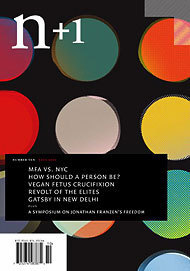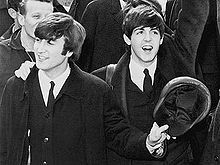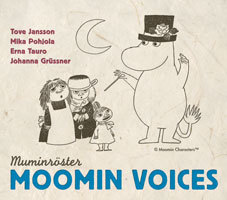Scott Timberg's Blog, page 30
August 15, 2014
The “Antifree” Movement Takes on “Free”
BY now, we’re all pretty familiar with the information-wants-to-be-free argument, and if you write for a living, or have had to endure numerous unpaid internships to break into a creative field, you know it all too well.
A wide-ranging, perceptive, and slightly arch essay in the hip Brooklyn journal n+1 sketches out the development not only of the Free Culture crowd — a mix of hackers, utopians, academics, and hypocrites, it argues — as well as, more recently, its opposition.
The Free movement had a few professorial spokespeople and millions of adherents; antifree was a small group of interested artisans speaking up for the dignity of being gainfully employed. As antifree grew beyond the small world of left-wing blogs, it attracted 25-year-olds who objected to being paid $50 by a corporate website that presumed them lucky to get the experience. It attracted veteran journalists who balked at being asked to write for a large, profitable magazine’s website for chump change. And it attracted unpaid interns, who at profitable media corporations (ranging from Condé Nast to Gawker), actually filed suit for violations of labor laws. These were individual stories, but they added up. The entities that had once supported journalists and writers were now doing their best not to pay them for the simplest of reasons: they could get away with it.
There’s a lot in here –Steve Albini and the alt-rock ’90s, the 2008 recession, the shrinking of book publishing, Pierre Bordieu, the longreads movement, Astra Taylor’s The People’s Platform, and so on.
There’s even a smart retort to Lewis Hyde’s The Gift: “As it happens, Hyde’s book is often cited as an argument against payment for writing—“Art is a gift,” these people say, as they pick up their paychecks from Princeton or Iowa or Columbia.”
The piece concludes this way:
In the argument between the free and the antifree, we’re with the antifree. Across a whole range of issues, a simple defense of intellectual property is right now a rebuke to the corporations, not a sop to them… On the money side, perhaps the next step for antifree is to create and strengthen a union—one that can demand standards for contracts, reprimand institutions for reneging on terms or norms of conduct, and otherwise represent the interests of culture workers before the ultimate bearers of responsibility for the diminishing of salaries and security: media conglomerates, corporate boards, and shareholders. And what about tax reform?
Solutions to this are tough, but the n+1 gang is on the right track.
August 14, 2014
The Importance of the Humanities
A GREAT Nicholas Kristof column today gets at the value of the humanities, especially philosophy, in a pragmatic, hyper-digital and neoliberal age.
I wouldn’t want everybody to be an art or literature major, but the world would be poorer — figuratively, anyway — if we were all coding software or running companies. We also want musicians to awaken our souls, writers to lead us into fictional lands, and philosophers to help us exercise our minds and engage the world.
Kristof focuses on the value of three 20th century philosophers: Isaiah Berlin, John Rawls, and Peter Singer. The thinking of one of those three is central to my upcomin book. “So let me push back at the idea that the humanities are obscure, arcane and irrelevant,” he writes near the end. “These three philosophers influence the way I think about politics, immigration, inequality; they even affect what I eat.”
Humanities majors typically make up a major part of the audience for the arts and books. When these numbers decline, a whole ecology withers.
August 12, 2014
Blue Music Group Pulls its Catalog from Spotify
A FEW weeks ago I wrote about the difficulties the new regime of streaming were creating in jazz and classical music, and quoted one of the heads of the avant-garde Pi Recordings on how the label had chosen to take its music off Spotify, since the rates were so bad and cutting into their sales. He was glad he’d done it.
The Blue Music Group has just made a similar move, with the founder of the indie jazz and classical label saying in a statement:
Having our catalog available at Spotify’s pitiful rates – and we’re talking about fractions of cents per streamed song – kills all chances to produce new fruitful music. Blue Music Group is keen to pay its artists fairly, we have one of the highest royalty rates in the industry. We rely on people buying our downloads from Apple iTunes, Amazon or Bandcamp.
Here is the story, on Digital Music News.
Amazon Attacks… George Orwell
BOY, this is weird.
The online bookseller, in an attempt to tackle its critics, has been quoting George Orwell WAY out of context. A New York Times story gets at the whole messy business.
In 1936 Orwell told a British paper: “The Penguin Books are splendid value for sixpence, so splendid that if the other publishers had any sense they would combine against them and suppress them.” The Times picks it up from here:
Orwell then went on to undermine Amazon’s argument for cheap e-books. “It is, of course, a great mistake to imagine that cheap books are good for the book trade,” he wrote, saying that the opposite was true.
“The cheaper books become,” he wrote, “the less money is spent on books.”
Instead of buying two expensive books, he said, the consumer will buy three cheap books and then use the rest of the money to go to the movies. “This is an advantage from the reader’s point of view and doesn’t hurt trade as a whole, but for the publisher, the compositor, the author and the bookseller, it is a disaster,” Orwell wrote.
I give St. George points for prescience here — even if it took a while for his prediction to come true.
Amazon, by the way, is now going up against Disney as well. (They’re the new Hachette.) Stay tuned.
August 11, 2014
“Is Spotify Killing Music?”
TWO descendants of Woody Guthrie and John Steinbeck make a good illustration of what’s happened to the lives of musicians lately. A new story — co-written by yours truly — up on TakePart looks at how musicians are being proletarianized, and I don’t just mean the lyrics.
The story — written with Kathleen Sharp — weaves between a look at the musical duo Sarah Lee Guthrie and Johnny Irion and the larger state of musicians in the age of streaming.
“Music is being treated as digital trash,” said Rebecca Gates, one-half of the ’90s indie band the Spinanes who now records as a solo artist. “But companies are getting money and building their identities on it. It’s horrifying.”
Musicians’ argument isn’t with streaming per se. “It’s the fact that everyone gets paid except the music creators,” said country singer-songwriter Rosanne Cash, who has recorded 13 albums since the 1970s. “We are creating a culture where content creators are a new servant class, and paid as such.”
For what it’s worth, Sharp wrote most of this piece; I mostly provided the context. In any case, please check it out.
August 8, 2014
Waging War on Middlebrow
A PROFOUND story appeared in the New York Times a few days ago and seems to have gotten far less discussion that it deserved. I mean film critic A.O. Scott’s “The Squeeze on the Middlebrow.” This is one of the best pieces I’ve seen connecting income inequality and the whole 1 percent business to culture and the middle class’s role in it.
Scott begins by speaking about Thomas Piketty’s Capital in the 21st Century.
The three decades between roughly then and the 1970s, known in France as “les trente glorieuses” (the “glorious thirty”), are remembered in the United States in various ways, not all of them glorious. The Cold War. The Space Age. The infancy, adolescence and reluctant adulthood of the baby boomers. The civil rights and sexual revolutions. The Golden Age of Middlebrow, whose end we may be mourning whether we realize it or not. That may sound odd, since “middlebrow” is the kind of word rarely said without a sneer. How can pretension and mediocrity enjoy a golden age? Like the later, sociologically related terms “yuppie” and “hipster,” middlebrow is a name you would never call yourself, but rather a semantic shoe that belongs on someone else’s foot. It is also, however, a workable synonym, in the sphere of art and culture, for democracy.
He looks at the resentment of middlebrow — the original term is British — by Virginia Woolf and other highbrows, Dwight Macdonald’s dismissal of “midcult,” and recent economic and culture changes. Some things are better now, Scott says. “But in literature and film we hear a perpetual lament for the midlist and the midsize movie, as the businesses slip into a topsy-turvy high-low economy of blockbusters and niches,” he writes. “The art world spins in an orbit of pure money.”
I’ll point out that part of what makes middlebrow hard to talk about — besides the obvious sneer you ca n’t help but hear behind it — is that the term describes two things. It’s both a kind of culture — unchallenging, conventional, perhaps overexposed — and a means of top-down cultural transmission: a book club run by Ivy League professors, Leonard Bernstein’s talking about classical music on television, and anything aiming to bring reasonably serious culture to a broad (and usually middle-class) audience.
n’t help but hear behind it — is that the term describes two things. It’s both a kind of culture — unchallenging, conventional, perhaps overexposed — and a means of top-down cultural transmission: a book club run by Ivy League professors, Leonard Bernstein’s talking about classical music on television, and anything aiming to bring reasonably serious culture to a broad (and usually middle-class) audience.
Even with the supposed economic recovery, the middle class is still hurting. Just today, a front page story in the Los Angeles Times shows what the job growth in California really means. Writes Tiffany Hsu:
“The fastest job creation has come in low-wage sectors, in which pay has declined. At the high end of the salary scale, a different dynamic has taken hold: rising pay and improving employment after rounds of consolidation.
Most distressing, middle-wage workers are losing out on both counts.”
Without giving too much away, I’ll just mention that my upcoming book Culture Crash looks at the end of middlebrow, the plight of the middle class, and other related subjects. These seem to me key parts of the crisis we’re in right now, and we won’t be able to get out without facing up to these themes. So far, few have.
August 7, 2014
Creativity and “Powers of Two”
JOSHUA Wolf Shenk’s new book, Powers of Two: Finding the Essence of Innovation in Creative Pairs, is the subject of my latest story. Shenk looks at more than 100 partnerships — some overt, some hidden — to try to distill the process of creation and derive patterns. He works especially with figures in literature and the arts — J.R.R. Tolkien and C.S. Lewis, Balanchine and Suzanne Farrell, and so on.
When I saw Shenk’s recent cover in the Atlantic, on the Lennon-McCartney partnership, I was skeptical. Is there anything left to say about the Beatles at this point, especially after books like Ian MacDonald’s Revolution in the Head demystified that supposedly magical mind-meld between the two. (We increasingly think of “John songs” and “Paul songs.” The rise of George Harrison’s capital in recent years seems to complicate the old notion still further.)
And I know people who admire Shenk’s work but are not convinced by the book’s argument — that duos are the rule in creative work.
But the Atlantic article, and Powers of Two, won me over. Shenk is a hard-working and earnest dude who really dug into the history and psychology of his subjects. He also struck the right balance between observing rules and respecting the “sea of mystery” around creativity — he admits we can’t really explain it all.
I found him less neurotic, in our meeting, than he describes himself. But he’s very rigorous, hard on himself, and has turned out a book everyone interested in the workings of creativity should check out.
I ended up with way more good quotes than I could use in my piece, and hope to post some of them here.
August 6, 2014
What Can the Music Business Learn from TV?
THE contrast is hard to miss: the great surge in television — especially on cable — as the music industry collapses. Culture writer Ted Gioia has written a short provocative post trying to make sense of the mismatch. He’s also asking how music can replicate some of the success of HBO, Showtime and the others.
Generally, Ted is urging the music and recording establishment to take the high road, doubling down on quality. Specifically, he thinks they should focus on grownups and not children.
This should be obvious to the music execs, but somehow they haven’t figured it out yet. Fourteen-year-olds will not support a subscription-based model for music. HBO realized that the dumbing down of network TV left a large group of consumers under-served, namely sophisticated grown-ups—and these were the same people with the most disposable income to spend on entertainment.
Ted continues: “In contrast, the major record labels are still stuck in kiddie land.”
There’s a lot of insight in this piece, and I urge all of my readers to find it. I’m left with a few questions; I don’t entirely know the answer to them.
First, how congruent are music and television? Rock and pop music — the field’s mainstream — has been built on young consumers for at least six decades now; how do you turn that around.
Second, how secure is this cable-TV golden age? Mad Men, Homeland, True Detective, and a handful of others are tremendous, but will un-bundling or some other technological/economic shift make today’s heyday as temporary as the rock boom of the ’60s?
Third, how typical are shows like the best fare on HBO and the others? Many of the most intelligent shows lose money and have tiny viewerships; Duck Dynasty and reality TV are far more popular than Masters of Sex. Doesn’t music have a similarly tiny gated community of smart, grownup fare, in places like Nonesuch, ECM and Merge Records.
I welcome responses to this and Ted’s sharp piece.
August 5, 2014
Bill Frisell and John Pizzarelli
Want to see two masters of the jazz guitar play a laid-back duo version of “Days of Wine and Roses”? We sure do.
sure do.
The performance, along with an inteview, just went up on the Fretboard Journal.
Here it is. Enjoy!
August 4, 2014
The Downside of Freelance Nation
WITH all the hype around the go-it-alone/ “free-agent” lifestyle and the new economy, it’s refreshing to see a sober, well-balance piece about making a living as a freelancer. Though it’s not specifically about the creative class, Tiffany Hsu’s story on freelancers and the “gray economy” in California is crucial to understanding where cultural life is heading.
The story begins with an anecdote:
A short gig doing security for the True Blood television show. A stint driving for a rental car company. A week as a customer service representative at a retail store.
This is how Delvontaie Antwine, 34, makes do in California’s economic recovery — earning a few scattered paychecks a month from odd temp jobs while living with relatives in Silver Lake.
Then it quickly gets into the big picture. Part of what’s valuable about the article is the way it gets behind wh at seem to be cheery employment numbers.
at seem to be cheery employment numbers.
It’s a purgatory sometimes called the gray economy. Although the official state unemployment rate dropped to 7.4% in June, 16.2% of Californians — or about 6.2 million — were either jobless, too discouraged to seek work, working less than they’d like or in off-the-books jobs….
Often, though, such workers are toiling without job security, benefits or career development opportunities.
“It’s pretty dismal,” said Economic Roundtable researcher Yvonne Yen Liu. “It leads to high rates of poverty and income inequality, and it doesn’t bode well for our ability to get back on our feet and be a prosperous region.”
Near the start of my creative-destruction series for Salon, I wrote a piece on “the gig economy”; an edited version of it will be part of my upcoming book, Culture Crash.
I’m a freelancer myself, and not by choice. I’ll acknowledge here, though, that for some, freelancing — playing music, acting, running a one-person design firm — is the best and most creative way to work, especially if you tap into a deep-pocketed steady revenue stream like Hollywood. But for many of us, it’s a rough way to make a living.
Scott Timberg's Blog
- Scott Timberg's profile
- 7 followers






